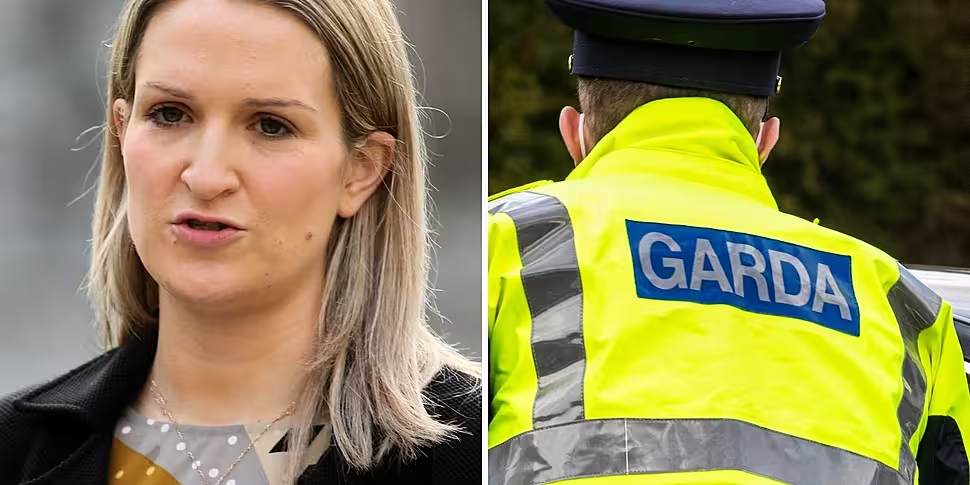The Justice Minister Helen McEntee says powers that will allow Gardaí inform people of sex offenders in their neighbourhood will only be used in 'specific instances'.
It is part of a new bill, published on Wednesday, which also allows electronic tagging of sex-criminals to be introduced for the first time.
There are currently more than 1,700 people subject to reporting requirements under Ireland's existing laws – with a further 433 prisoners due to be monitored on their release.
There will also be tighter rules governing the Sex Offenders' Register – with offenders required to notify Gardaí of any change of address within three days, down from the current seven.
The courts will also be explicitly able to bar offenders from working with children or vulnerable people.
Minister McEntee told The Hard Shoulder this is about strengthening current laws.
"There's a number of recommendations, one of which... is electronic tagging.
"It doesn't currently exist, it's not in place for somebody who is on the sex offenders register.
"And it's now, with this law when it's introduced, going to be an option for a judge to put this as part of an order.
"It won't apply to everybody, but it will be an option for a judge to consider in different circumstances".
'They might be at risk'
On Gardaí notifying people of sex offenders in their area, Minister McEntee says there will not be 'a public meeting'.
"Other areas are around risk assessment - so it's allowing the Gardaí, on a statutory footing, to engage with the Probation Services - the likes of Tusla, any other agency it sees fit to assess a risk.
"And then based on that, they can make further decisions: whether it's possibly engaging with somebody to inform them that we have a person in the area and they might be at risk.
"Or it might be going back to a court to say 'We feel there is a risk, we would like you to amend the order'.
"And to date, they haven't been options that have been available to the Gardaí either".
She says these powers will be used sparingly for those directly affected.
"What we're talking about is in very specific instances - this won't be a public meeting where they tell the community that somebody is in the area.
"What you want to do is balance the risk here: absolutely we don't want to incite an entire community, which in itself can cause problems.
"It drives the individual who's on the register to ground, you then have a situation where the Gardaí or Probation Services possibly can't monitor them - so we don't that.
"But if you have - and I think this is the clearest example for people maybe - someone who's on the register, who's started a relationship, the person in the relationship has children and the reason that they were in prison was because they abused a child.
"There has to be a decision taken: do we feel that there is a risk to this person and to their child or children - do we tell them?
"You have to be very careful that this then doesn't turn into an entire community knowing".
And Minister McEntee says she would 'potentially' be in favour of making it illegal to protest outside a politician's home.
A number of protests have taken place outside or near politicians' private homes in recent months, including Minister Simon Harris and Tánaiste Leo Varadkar.
Fianna Fáil Senator Malcolm Byrne is bringing forward a bill that would make that a criminal offence.
Minister McEntee says there are plenty of other places to protest.
"I think as a public representative - or indeed anybody who's in the public life or the public eye - there are workplaces.
"There are many spaces where people can peacefully protest... and I wouldn't even like any suggestion that I don't think people should be able to protest.
"I 100% think people have the right to protest.
"I think when it comes to somebody's house, outside their front door where their family is - where their children are potentially, where their neighbours are who have nothing to do with this - I think it crosses a line."









